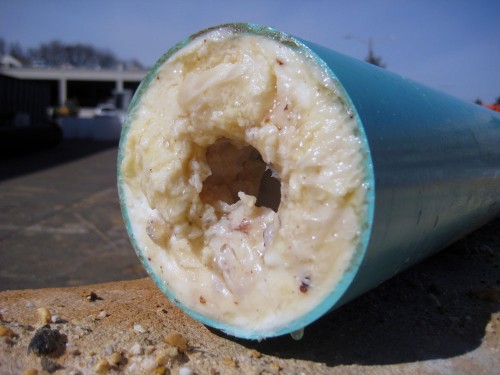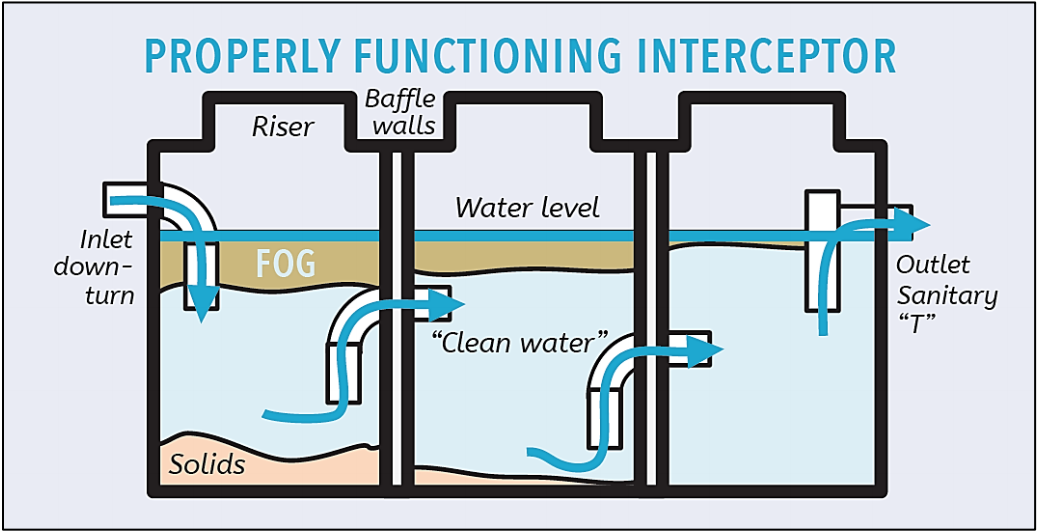Oftentimes when we think of grease, the first thing that comes to mind is food byproducts, clogged pipes, and grease traps. While these are all factors involved in the grease production and treatment process, grease actually comes in different forms. Depending on your facility and services, you may produce more of a certain type of grease than another. While, for the most part, this differentiator won’t cause too much hassle when it comes to your grease trap’s functionality, it can be helpful to know in case anything ever goes wrong. Let’s take a look.
What is a Grease Trap?
The first step toward understanding your grease trap, and why you even have one, is to get a firm grasp on the concept of grease. In general terms, grease is a semisolid lubricant that is created when oil is combined with a thickener. Grease can be produced and used in many different ways; however, it’s most commonly known as cooking grease. This grease type is created by food byproducts released during the cooking process.
Because of its ability to take a solid form at room temperature, restaurants and other food-producing facilities are required by law to install grease traps. This prevents the buildup of solid grease and other materials within local pipes.
In the most basic terms, grease traps work by slowing the flow of hot/warm grease, allowing it to cool once poured down the drain. As the temperature drops, the grease and oil begin to separate from the water, forming a solid mass at the bottom of the grease trap. This allows the remaining water to safely flow through the grease trap and into the outflowing pipes – all without clogging the local system. While the concept can seem a little out of reach, grease traps actually help with more than just preventing FOGs (fats, oil, and grease) from entering the local sewer systems – they also protect your facility from major fines.
So now that we’ve got an understanding of your grease trap and how it works, let’s take a look at some of the different types of grease you might encounter along the way:
Yellow Grease
Whether you realize it or not, you come into contact with this type of grease daily. Known by many different names, yellow grease simply refers to the contents recovered by the used vegetable oils of restaurants and other similar facilities. This grease type is great for recycling, and will often be reused in manufacturing facilities or created into biodiesel after it leaves food production. Because of its recycling properties, many restaurants store their used yellow grease into bins and sell them off to companies who then turn it into a variety of different reusable products.
Brown Grease
Ever notice that pungent smell coming from your grease trap? This is your culprit. In the recycling industry, “brown grease” refers to grease recovered from your grease traps and interceptors. It’s created by a combination of grease, oils, fats, chemicals, and other solids that make it down the kitchen sink and into your grease trap. Made up of decaying materials, brown grease is typically classified as “septage,” meaning it requires proper removal and proper disposal by experts. Because of this, facilities hold a responsibility to properly dispose of their grease trap contents or find a third-party company to do it for them. While many grease trap cleaning companies make promises to transport and lawfully dispose of grease, some cut corners – resulting in illegal dumping practices that can cost your company big.
Hire experts you can trust to tackle your facility grease trap. When you work with Environmental Remedies, you can rest assured that your grease will be properly cleaned and disposed of via our on-site waste treatment system. Looking to schedule your next grease trap cleaning? Get started by requesting a quote, or contact us with any questions regarding our grease trap cleaning services!







